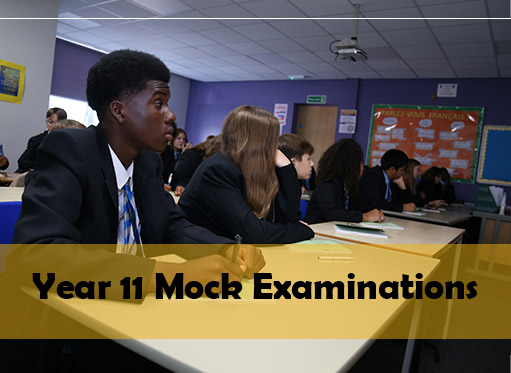Year 11 is a crucial year for students in the United Kingdom, as it marks the culmination of their secondary education and the culmination of their efforts towards achieving their General Certificate of Secondary Education (GCSE) qualifications. Among the many milestones in this academic journey, one of the most significant is the Year 11 GCSE mocks.
These mock exams serve as a crucial preparation tool for the actual GCSEs, helping students assess their strengths and weaknesses, refine their study strategies, and gain valuable exam experience.
But when exactly do you do these mock exams, and why are they so important? In this article, we’ll delve into the timing and significance of Year 11 GCSE mock exams.
Table of Contents
- What are GCSE Mock Exams?
- Why is the Year 11 GCSE Mocks Important?
- When Do Year 11 GCSE Mocks Typically Hold?
- Are Year 11 Mocks Hard?
- Are GCSE Mock Exams Done in Year 10?
- Are GCSE Mock Exams available for all Subjects?
- Is The GCSE Mock Exam very Important?
- Frequently Asked Questions
- Conclusion
- References
- Recommendations
What are GCSE Mock Exams?
GCSE mock exams, often referred to simply as ‘mocks,’ are practice examinations designed to simulate the format and conditions of the actual General Certificate of Secondary Education (GCSE) exams in the United Kingdom.
These mock exams are an integral part of the preparation process for GCSE students. Below are the components that make up the GCSE mock exam.
- Simulated Exams: Mock GCSE examinations are, in essence, simulated versions of the actual GCSE examinations that students will take later in the academic year. They are constructed in a manner that closely resembles the format, content, and timetable of the actual GCSE exams for a variety of subjects.
- Timing: In the UK, mock exams are usually given in Year 11, the last year of compulsory secondary education. They are typically scheduled prior to the actual GCSE exams, which are typically held in May and June.
- Subjects: Students will be tested on the same topics on their GCSE mock exams. English, mathematics, the sciences, foreign languages, the humanities, and a variety of elective courses are examples of these subjects.
- Exam Conditions: Students are required to take mock exams in a formal setting, typically in a designated examination hall or classroom, under exam conditions. They must follow the same rules and time constraints as the actual GCSEs.
- Assessment: Students’ performance on mock exams is evaluated by instructors or examiners. They look at how good the answers were, assign scores or grades, and tell students where they’re doing well and where they can do better.
See this: When Do Year 11s Officially Finish School? School Year FAQs
Why is the Year 11 GCSE Mocks Important?
Year 11 is a pivotal year for students, as it sets the stage for their future academic and career aspirations. The GCSE exams, which typically take place in May and June, are high-stakes assessments that can significantly impact a student’s future.
Achieving good grades in these exams opens doors to further education opportunities, including A-levels, apprenticeships, or vocational courses.
This is where Year 11 GCSE mock exams come into play. Mock exams are practice runs for the actual GCSEs, designed to mimic the format and conditions of the real assessments.
Here’s why these mock exams are so crucial:
Assessment of Progress
Mock exams provide an excellent opportunity for students to assess their current level of understanding and knowledge in each subject.
They offer a realistic gauge of where students stand academically and highlight areas that need improvement.
Exam Experience
Navigating the pressure and time constraints of a formal exam can be daunting for students. Mock exams help students become familiar with the exam environment, reducing anxiety and building confidence for the actual GCSEs.
Identification of Weaknesses
By taking mock exams, students can identify specific topics or skills they struggle with. This insight enables them to tailor their revision and study plans to address their weaknesses effectively.
Refinement of Study Techniques
Mock exams can reveal whether a student’s study techniques are effective or need adjustment. Students can experiment with different study methods and strategies based on their mock exam results.
Time Management
Time management is crucial during exams. Mock exams allow students to practice allocating their time wisely for each question, helping them avoid running out of time during the real GCSEs.
Motivation and Accountability
Knowing that mock exams are approaching can motivate students to stay on top of their studies throughout the year. It creates a sense of accountability and urgency.
Related Article: When Do University Starts in the UK? University Terms and Academic Calendar 2024-2025
When Do Year 11 GCSE Mocks Typically Hold?
Depending on the school, Year 11 GCSE mock exams take place at different times. Nonetheless, they are normally planned for the months leading up to the actual GCSEs, typically in the first half of the academic year.
Regarding the timing of these mock exams, here are some important points to keep in mind:
- The Fall Term: Many schools decide to hold mock tests during the fall term of Year 11, normally around October or November. Before the actual GCSEs, this gives students ample time for targeted revision and allows for an early assessment of their progress.
- Spring Session: Mock exams may be offered during the spring semester at some schools, typically in January or February. Students’ readiness for the GCSEs can be assessed at this time, allowing for adjustments to their study schedules.
- Multiple rounds: In some cases, schools might lead numerous rounds of mock tests, with one set early in the academic year and another closer to the actual GCSEs. Students have the chance to evaluate their progress over time with this strategy.
Are Year 11 Mocks Hard?
The difficulty of Year 11 GCSE mock exams can vary depending on several factors, including the subject, the school’s curriculum, the teacher’s expectations, and individual student preparation.
Here are some considerations to keep in mind regarding the perceived difficulty of Year 11 mocks:
- Variation in Subject: Depending on the subject, the perceived difficulty of mock exams can vary greatly.
- Norms for the School: To encourage students to study harder and perform better, some schools may choose to make their mock exams more difficult, while others may aim to closely replicate the difficulty of the actual GCSE exams.
- Teacher Evaluations: Mock exams’ difficulty can also be affected by the assessment methods used by individual teachers. Mock exams may be created by some teachers in a manner that closely resembles the format and level of difficulty of actual GCSE exams, while others may employ a slightly different strategy.
- Student Preparation: How well students have prepared is a significant factor in determining the perceived difficulty of mock exams.
- Expectations: A student’s perception of the difficulty of mock exams can also be influenced by their own expectations and self-assessment.
- Criticism and Learning: It’s a memorable essential that the reason for mock tests isn’t simply to survey but also to give criticism and learning potential open doors.
See this: Top 10 Grammar Schools in the UK | Full Review
Are GCSE Mock Exams Done in Year 10?
GCSE mock exams are typically conducted in Year 11 rather than in Year 10. Year 11 is the final year of compulsory secondary education in the United Kingdom, and it is the year when students prepare for and take their actual GCSE exams.
Here’s why mock exams are typically scheduled in Year 11:
- Alignment with GCSE Coursework: Mock tests are intended to recreate the organization and states of the genuine GCSE tests. Hence, they are directed in Year 11 to line up with the educational plan and subjects that students will take in the GCSEs.
- Preparation for the Real GCSEs: Year 11 is the year when students seriously get ready for their GCSEs, which are generally held in May and June. Before the actual GCSEs, students can use mock exams as an important part of their preparation to figure out how prepared they are, find areas for improvement, and gain experience in a real exam environment.
- Final Assessment: The consequences of Year 11 GCSE mocks can give students and educators significant experiences in their scholarly advancement and regions where extra help or correction might be vital. To fine-tune the study plans of students in Year 11, this information is especially important.
- Objective Setting: Year 11 mocks permit students to lay out practical objectives for their last GCSE results in light of their presentation. In the final year of secondary education, this goal-setting process can inspire students to work diligently.
Are GCSE Mock Exams available for all Subjects?
You do often have practice tests for each subject. The purpose of this is to give you a taste of what the actual GCSE test period will be like. You should therefore have less anxiety and tension on exam day since you will be prepared.
Whether or not you have a mock exam for a topic is up to your lecturers, though. Since you might not have covered enough material in the first round of mocks, some teachers would prefer that you skip the mock exam. Later on, you can take the mock exam for this topic.
Is The GCSE Mock Exam very Important?
When it comes to studying for mock tests, many students give it little to no effort. Some pupils don’t even try to study for their mock exams! This is due to their knowledge that the mock examinations are meaningless and that they are not the actual GCSE exams.
But this is not the right frame of mind to have. Indeed, your official GCSE grade at the end of the year will not be determined by the grades you obtain on your mock tests. Still, they are really significant!
This is because practice exams let you identify your areas of strength and weakness in each topic. You will therefore be able to study for your actual GCSE exams more effectively.
Also, GCSE mock tests simulate the actual exam environment, allowing you to practice how you will handle test-taking pressure. You can practice how to relax before a test, for instance, and how to manage your time well.
Frequently Asked Questions
Yes, mock exam results can help you set realistic goals for your final GCSE results. By analyzing your mock exam performance and receiving feedback, you can make informed decisions about your study priorities and goals.
The difficulty level of Year 11 mock exams can vary depending on school policies and teacher preferences.
Mock exam results do not count toward your final GCSE grades. They are intended for assessment and feedback purposes.
Effective preparation for mock exams involves consistent study, revision of key topics, practicing past papers, seeking help from teachers, and maintaining a healthy lifestyle to reduce stress.
Year 11 mock exams typically cover the same subjects that students will be examined on in their actual GCSEs. These subjects can include English, mathematics, sciences, foreign languages, humanities, and elective courses.
Conclusion
Year 11 GCSE mock exams are a crucial component of the preparation process for students in the United Kingdom. They help students gauge their readiness for the actual GCSE exams.
The timing of these mock exams typically falls within the Year 11 academic year, providing students with ample time to make necessary adjustments to their study plans. By taking these mock exams seriously, students can increase their chances of success in their final GCSEs.
References
- Thinkstudent.co.uk ______ When Do You Do Your GCSE Mock Exams?
- Corecity.academy ______ Year 11 Mock Examinations
- Studysmarter.co.uk ______ Your Ultimate Guide to Success at GCSE and A-Level Exams
Recommendations
- Are GCSEs (Actually) Hard? Top Tips for Passing the Most Difficult GCSE Exam Papers
- The 17 Best Things You Can Do on The Day of Exam | Tips
- 7 Tips for Choosing Your First Programming Language
- How To Write An EPQ Essay till Conclusion (Step-by-Step Guide)
- Last-Minute GCSE Revision Tips| Score Higher In Last Minute





